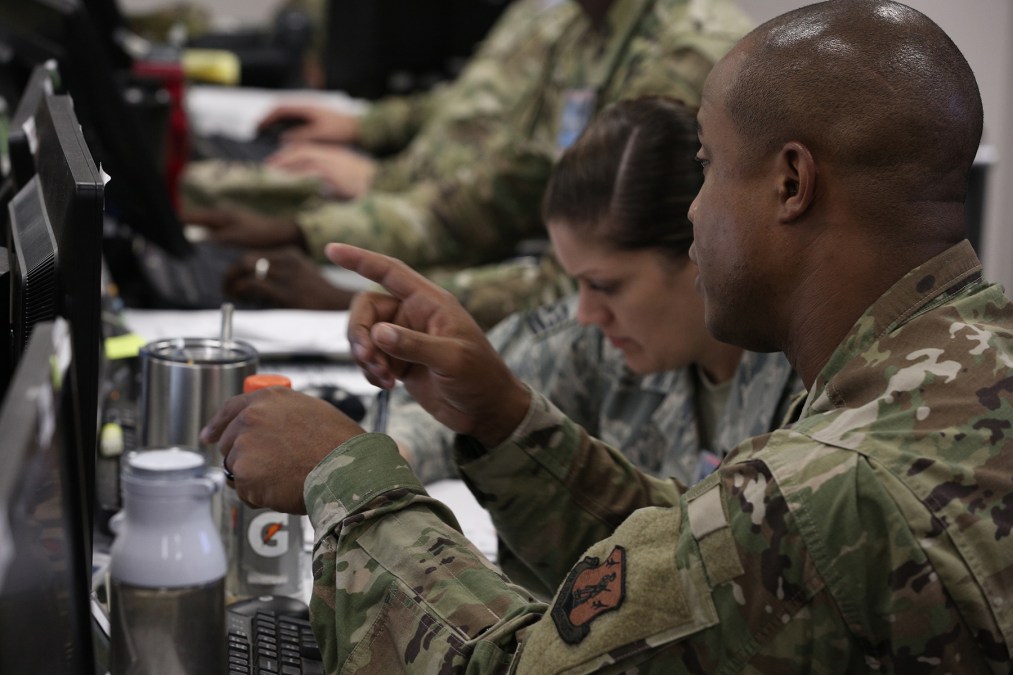The funding follows a push from Congress for Cybercom to develop an AI roadmap.
Listen to this article
0:00
Learn more.
This feature uses an automated voice, which may result in occasional errors in pronunciation, tone, or sentiment.

U.S. Cyber Command’s budget request for fiscal 2026 includes funding to begin a new project specifically for artificial intelligence.
While the budget proposal would allot just $5 million for the effort — a small portion of Cybercom’s $1.3 billion research and development spending plan — the stand-up of the program follows congressional direction to prod the command to develop an AI roadmap.
In the fiscal 2023 defense policy bill, Congress charged Cybercom and the Department of Defense chief information officer — in coordination with the chief digital and artificial intelligence officer, director of the Defense Advanced Research Projects Agency, director of the National Security Agency and the undersecretary of defense for research and engineering — to jointly develop a five-year guide and implementation plan for rapidly adopting and acquiring AI systems, applications, supporting data and data management processes for cyber operations forces.
Cybercom created its roadmap shortly thereafter along with an AI task force.
The new project within Cybercom’s R&D budget aims to develop core data standards in order to curate and tag collected data that meet those standards to effectively integrate data into AI and machine learning solutions while more efficiently developing artificial intelligence capabilities to meet operational needs.
The effort is directly related to the task of furthering the roadmap.
As a result of that roadmap, the command decided to house its task force within its elite Cyber National Mission Force.
The command created the program by pulling funds from its operations and maintenance budget and moving them to the R&D budget from fiscal 2025 to fiscal 2026.
The command outlined five categories of various AI applications across its enterprise and other organizations, including vulnerabilities and exploits; network security, monitoring, and visualization; modeling and predictive analytics; persona and identity; and infrastructure and transport.
Specifically, the command’s AI project, Artificial Intelligence for Cyberspace Operations, will aim to develop and conduct pilots while investing in infrastructure to leverage commercial AI capabilities. The command’s Cyber Immersion Laboratory will develop, test and evaluate cyber capabilities and perform operational assessments performed by third parties, the budget documents state.
In fiscal 2026, the command plans to spend the $5 million to support the CNMF in piloting AI technologies through an agile 90-day pilot cycle, according to the documents, which will ensure quick success or failure. That fast-paced methodology allows the CNMF to quickly test and validate solutions against operational use cases with flexibility to adapt to evolving cyber threats.
The CNMF will also look to explore ways to improve threat detection, automate data analysis, and enhance decision-making processes in cyber operations, according to budget documents.






